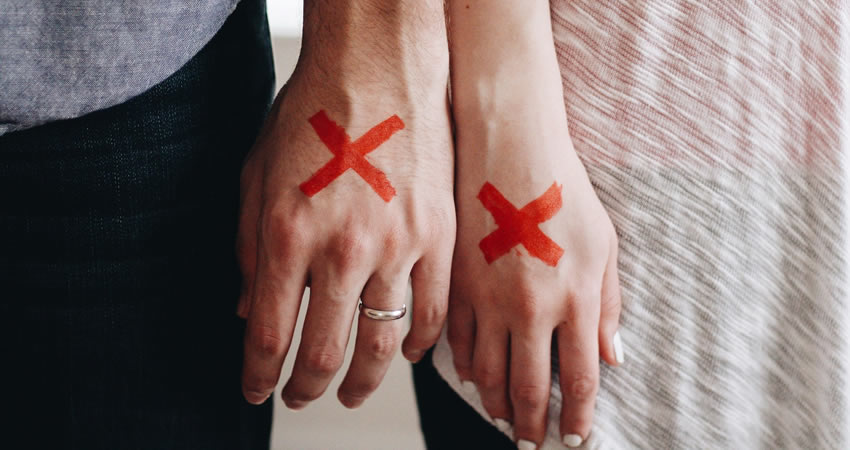Depression, anxiety and stigma are three things that have been present in my life for as long as I can remember. I may not have realised it until I was 17 years old, but they were there. The anxiety was there when, even as a young child, I would lie in bed at night gripped by a paralysing fear that horrible things would happen to the people I love. The depression started as a fog of sadness that would invade my mind almost every day and refuse to budge. And the stigma? Well, the stigma was everywhere. It still is, if you know where to look: it’s permeated every single level of society. It’s insidious, it’s incredibly damaging, and it was a major obstacle to my recovery. Telling anyone about what I was going through seemed impossible, because I was convinced that they would react badly. I couldn’t face the idea of my family, friends, or teachers judging me, which seemed like the only possible outcome of talking about my mental health.
Beginnings
Right from primary school, I’d learned that there were two types of people when it came to mental illness: people who were ‘normal’, and people who were ‘crazy’. Every mentally ill person was lumped into one big group, whether they were depressed, anxious, schizophrenic, or suffering from any other condition. These were the ‘loons’, the ‘nutcases’, the ‘mental cases’, and the ‘crazies’. Being one of these people was unforgivable. They were at best ridiculed, and at worst objects of fear and suspicion. Kids at school would talk in hushed tones about ‘crazy’ people their parents had told them about, who would allegedly become violent if you so much as looked them in the eye. Any fellow pupil who showed signs of being down or depressed was labelled an ‘emo’ and laughed at. People would joke about how these kids should either just cheer up, or slit their wrists already. There was no sympathy for anyone suffering from any kind of mental ailment: instead, there was only blame. There was a perception that people chose to be mentally ill, mostly for attention, and that they could stop if they wanted to. I don’t know if I just came from a particularly traditional or closed-minded area, but the message I got was clear: being mentally ill was something to be ashamed of, and it was all your fault.
With that kind of message being rammed into my brain from an early age, it’s no wonder I was so terrified to tell anybody when depression and anxiety began their assault on my mind. I expected to be ostracised, mocked, or even just disbelieved. Add in to the mix my overpowering wish for approval from everybody in my life, and there was no chance I was going to share my inner turmoil with anybody. In my mind, I was worth so little that even one ‘black mark’ against me would be enough to alienate those who loved me the most. I didn’t want my mental health to be that mark. So, I stayed silent. I tried my hardest to fight off the unrelenting negative thoughts and anxiety attacks, and tried even harder not to let them show. Of course, none of this actually helped me to get better. In fact, it only made things worse. Not being able to express how I was feeling meant that all of the misery, anger, and fear stayed pent-up inside me. It was unsustainable, and one day, it all overflowed.
My first challenge to stigma
From August 2012 onwards, it was impossible to act like everything was okay. I had no appetite, and weight was dropping off my already slim frame. I couldn’t sleep, making me a walking zombie at school and at home. I barely left the house, making me even paler than usual (which is pretty ghostly on a good day). My personality completely changed: I went from being jokey, confident, and sociable to practically silent. People were beginning to notice that something wasn’t right. When a teacher who’d known me for a mere three days took me aside to express concern for my wellbeing, I realised that I couldn’t keep my struggle to myself any longer. One Sunday afternoon, I broke down in tears and confided in my father that I suspected I was depressed.
To my extreme surprise, I discovered that he didn’t resent or distrust me for being mentally ill. All he felt was concern for my wellbeing. He didn’t see me as a burden, or ask me why I couldn’t just ‘feel better’. He listened to my concerns, and addressed them as thoroughly as he could. His support helped to pull me out of that initial down spell, and I’ll forever be grateful to him for that. However, not everyone was as loving and accepting as my dad. Certain people in my life looked down upon my condition, and I faced the classic accusation of attention seeking. I was asked if I was doing this just to be a nuisance to others, and told to just ‘snap out of it’. In a way, it didn’t even matter that one person had proved that stigma isn’t in the hearts of all members of society. When you’re suffering from depression in particular, your mind latches on to the negative while dismissing the positive as incorrect or unimportant.
A turning point
When I left home to attend university, I still believed that the majority of people wouldn’t want to know someone who suffered from mental illness. Of course, that initial spell of university is all about making friends and appearing as popular as possible, so it was imperative to repress any depressive or anxious feelings I was having and project an image of being cool, fun-loving, and happy. I’m pretty sure people saw through this mask, and I’m pretty sure I struggled to make friends for nearly a year because of it, but at the time, I couldn’t bear for people to know the truth. The stigma felt too powerful.
Then, in 2014, something changed. In February of that year, I suffered a major bereavement that sent me hurtling towards rock bottom. I started suffering from intrusive suicidal thoughts: I couldn’t walk down the street without imagining walking into the path of an oncoming car. I desperately didn’t want to lose my fight, but it seemed like I was at war with my own mind. With the support of my university tutor and my GP, I began a course of therapy and medication in an attempt to finally address my issues. I didn’t want my mental illnesses to remain in the dark any longer. I wanted to challenge them, and wrestle control from their iron grip. So, I came clean. I wrote about what I was going through, and I posted it on a public blog for all of my family and friends to see. While I was still terrified of the stigma I might face by taking this step, I figured that if anyone directed it at me, I would know that they didn’t deserve to be in my life any more. I fully accepted myself, warts and all, and was no longer afraid of the rejection of others.
I was completely surprised when the reaction to that first blog post was overwhelmingly positive. I’d expected it to be either criticised or ignored, but instead, messages of support came flooding in. People who I thought didn’t care about me got in contact to offer help, and even strangers messaged me to send kind words. Of course, there’s always that one person who has to rain on your parade. Some people questioned why I would admit to something so apparently ‘shameful’, or accused me of faking my illnesses for social media ‘likes’. But finally, I’d found the strength within myself to reject their unfair – and untrue – assumptions. It didn’t matter what they thought: I knew they were wrong, and I knew I had plenty of people behind me who would offer nothing but positivity.
The road to self-acceptance
It’s been three years since I first shared my story and fought the stigma that had silenced me for so long. I can honestly say that I have only improved mentally and emotionally since that day. There’s something so liberating about challenging negative assumptions. I’ve made it my job to keep on talking about mental health and to make it a topic associated with compassion and care rather than shame and criticism. Recovery comes so much easier once you’ve escaped the shackles of stigma and decided not to care about what the rest of the world things. It’s obviously easier said than done, but my parting advice to others would be to avoid my mistakes, and to try and talk about what you’re going through as much as possible. Don’t let a fear of stigma imprison you and prevent you from seeking help. People can be a lot more kind and understanding than you’d expect.
Image credit: Free_Photos
 Ellie Miles is a freelance mental health writer and blogger based in the United Kingdom. When she isn’t writing about her experiences with depression and anxiety, she’s probably playing with her cat.
Ellie Miles is a freelance mental health writer and blogger based in the United Kingdom. When she isn’t writing about her experiences with depression and anxiety, she’s probably playing with her cat.


Paul Illidge
So much good stuff in your story, Ellie. And so well written. It shed some light for me. I came away feeling I was listening to “Bright Side of the Street”, a song by Van Morrison that always picks me up.
Paul
Ellie
Thanks so much, Paul! Glad you enjoyed it!
Ellie